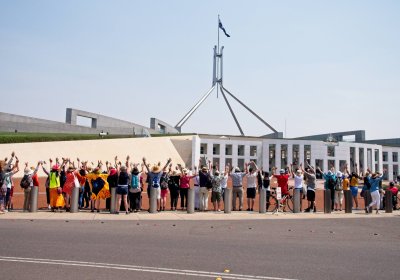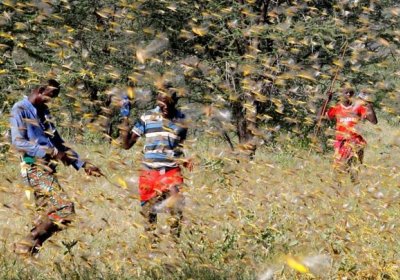As people were fleeing their burning homes and volunteer firefighters were crowdfunding basic supplies in December, Australia’s Pentecostal Prime Minister was busy working on safeguarding the rights of a handful of bigoted institutions to discriminate, writes Chris Jenkins.
Analysis
Paul Gregoire writes that Mardi Gras season is a good time to reflect on the religious freedom bills that, if passed, would undermine the rights of LGBTIQ people.
More people are saying “politics is broken” and it is not hard to see why. But, as Alex Bainbridge argues, fixing the situation will require breaking the enormous power fossil fuel corporations have over the major parties.
Bullying is never okay, and certainly not from the “lunatic fringe” inner city or “scientists”, writes Carlo Sands.
The bushfire emergency has not slowed the bipartisan charge to push the planet over the climate catastrophe cliff, writes Sam Wainwright.
Rural Fire Service volunteer Robynne Murphy, who has been on the bushfire frontline since November on behalf of her local community on the NSW south coast, told Green Left: "I want this government brought down because they have no solutions".
While political elites would have us believe that everything is under control, a political shift is taking place as a result of the bushfire emergency and lack of preparation by state and federal governments, writes Pip Hinman.
While extreme weather events are driving up food prices in Australia, poorer nations experiencing the same extremes face very different and disastrous consequences, writes Pat Brewer.
The sheer scale of the recent bushfires and their timing (during the summer school holidays) have had a crippling impact on many working people, including small business owners, and put the ongoing sustainability of rural communities at serious risk, writes Graham Matthews.
The federal government is pouring billions of dollars into its attempts to deal with the worst impacts of a climate crisis it prefers to ignore. Yet, as Elena Garcia explains, this money will never achieve its stated aim nor reach those who need it most.
The burden of responsibility for the climate crisis is often placed on poorer nations. But, as Chloe DS argues, the main culprits continue to be the rich and powerful 1%.
Animal rights activist in Melbourne have harmed the climate movement and their own cause by attempting to stack meetings and ram through demands, argue Jacob Andrewartha and Sue Bolton.
- Previous page
- Page 128
- Next page











